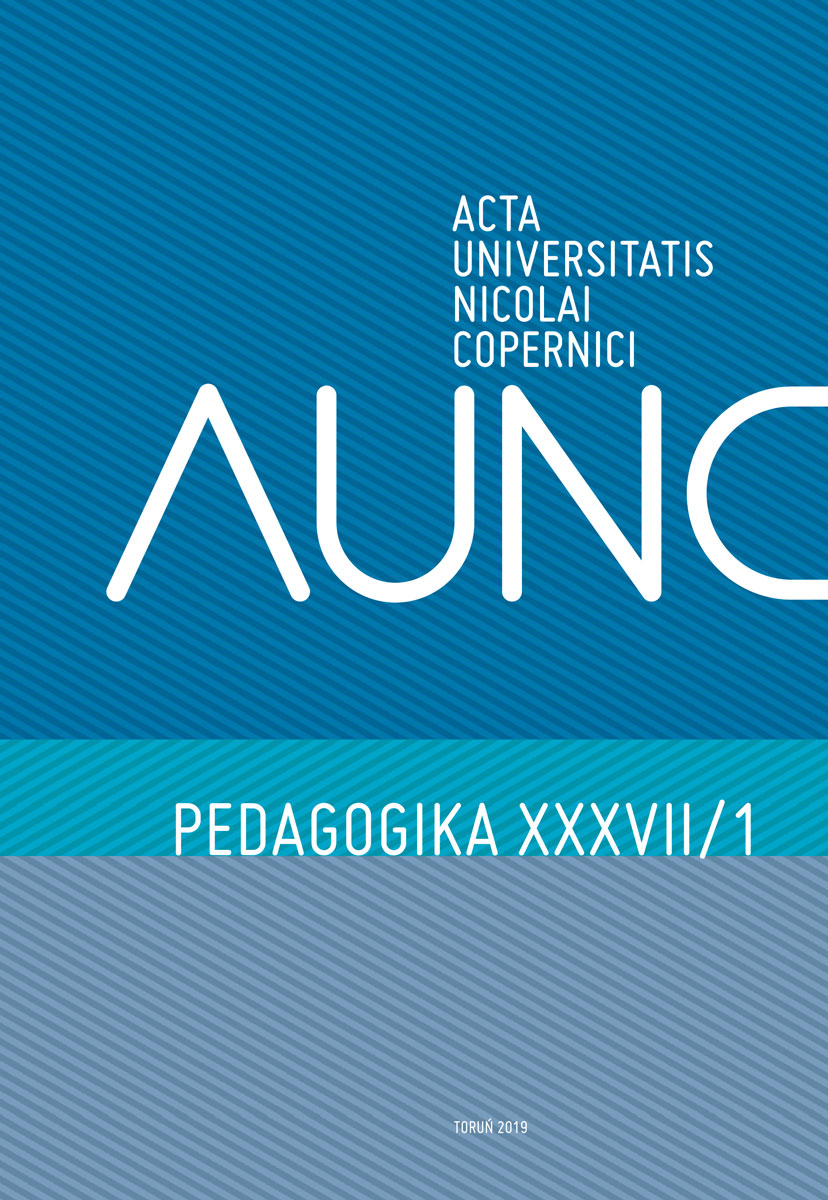How can Christian love be taught using the ‘spiritual cinema’?
DOI:
https://doi.org/10.12775/AUNC_PED.2019.007Słowa kluczowe
teaching with films, Christian values, suffering, love, patienceAbstrakt
The article reflects upon one aspect of multimodal education – the possibility to teach moral matters with films. This possibility was discerned by American film philosopher Stanley Cavell. It was also discussed in detail by American social science teacher W.B.Russell III, The author of this particular article sees some essential similarities and some differences between Russell’s suggested methodologies and stages and the methodology she developed herself and started to use actively from 2002 teaching practical philosophy in some Lithuanian universities in practical philosophy courses. She is using films as an analogy. Educators using this method of teaching with films customarily stress its purpose as being to develop critical-thinking ability and acquire knowledge. But is it possible to use cinema in education for acquiring sensitivity to certain values? For example, the ability to recognize the values of Christian ethics? The article discusses the results of multimodal teaching experiment teaching Christian ethics with two feature films: Ingmar Bergman’s The Winter Light (1963) and Robert Bresson’s Diary of a Country Priest (1951). As the results of teaching experiments were reflected the values of suffering, love and patience discerned by the students.
Bibliografia
Gilles D. ,The Brain is the Screen: An Interview with Gilles Deleuze. In: The Brain Is. he Screen. Deleuze and the Philosophy of Cinema. ed. G. Flaxman. Minneapolis, 355-372. London: University of Minnesota Press. 2000.
Gilles D., Cinema 1: The Movement-Image. Trans. H. Tomlinson and B. Habberjam Minneapolis: University of Minnesota Press. 1986 .
Emmanuel L., Autrement qu'être ou Au-delà de l'essence,. Paris: Kluwer Academic, 1978.
Emmanuel L., Humanisme de l’autre homme. Paris: Fata Morgana, 1972.
Litch M., A. Karofsky. Philosophy through Film. New York, London: Routledge, 2015.
Mealey A. M., The Identity of Christian Ethics. Fareham, Burlington: Ashgate eBook, 2009.
Russell W.B., S. Waters, The Fundamentals of Teaching with Films, In: Cinematic Social Studies. A Resource for Teaching and Learning Social Studies with Film, Charlotte, NC: Information Age Publishing, 2017.
Klevan A., What Becomes of Thinking of Film? In: Film as Philosophy. Essays in Cinema after Wittgenstein and Cavell. ed. R. Read, J. Goodenought, 167-209. New York: Palgrave Macmillan, 2005.
Tertullian. Of Patience. Trans. Rev. S. Thelwall, https://caplawson.files.wordpress.com/2015/01/of-patience-by-tertullian.pdf
Pobrania
Opublikowane
Jak cytować
Numer
Dział
Licencja
Prawa autorskie (c) 2020 Acta Universitatis Nicolai Copernici Pedagogika

Utwór dostępny jest na licencji Creative Commons Uznanie autorstwa – Bez utworów zależnych 4.0 Międzynarodowe.
Statystyki
Liczba wyświetleń i pobrań: 576
Liczba cytowań: 0



